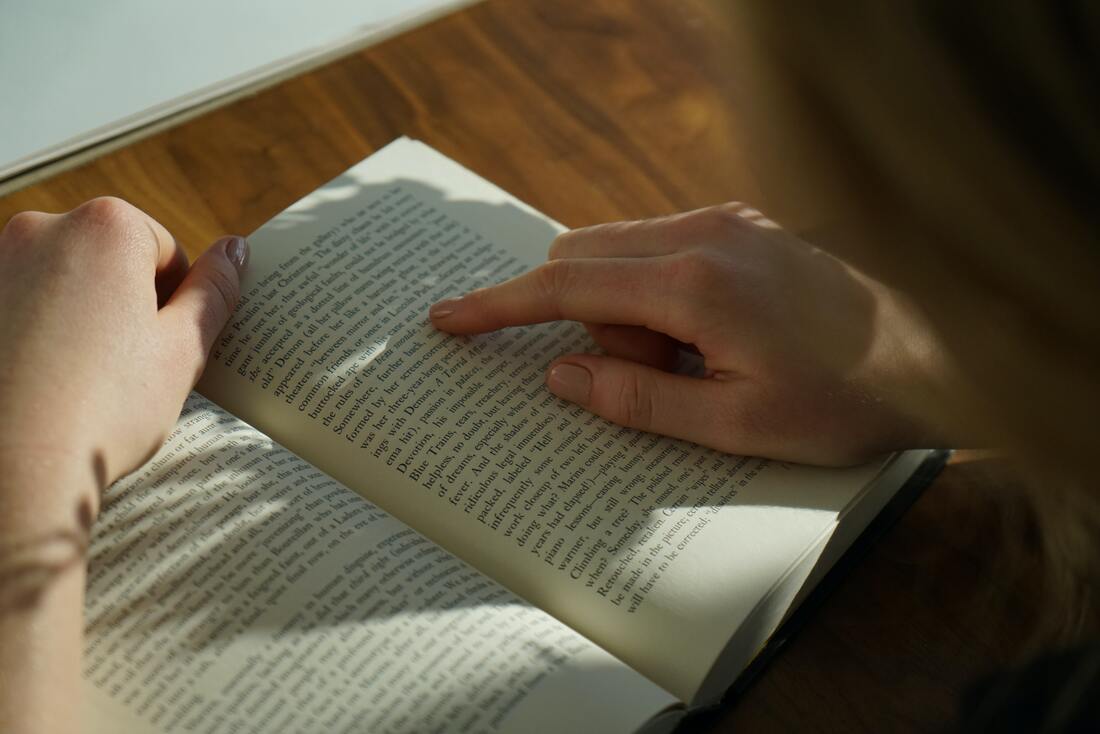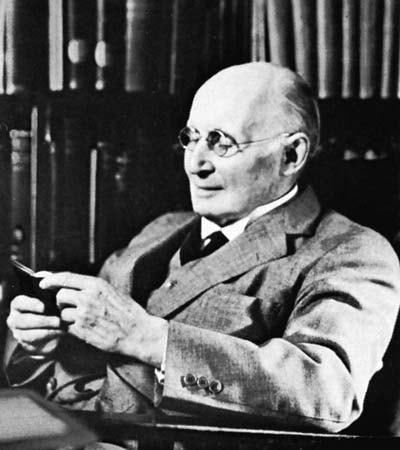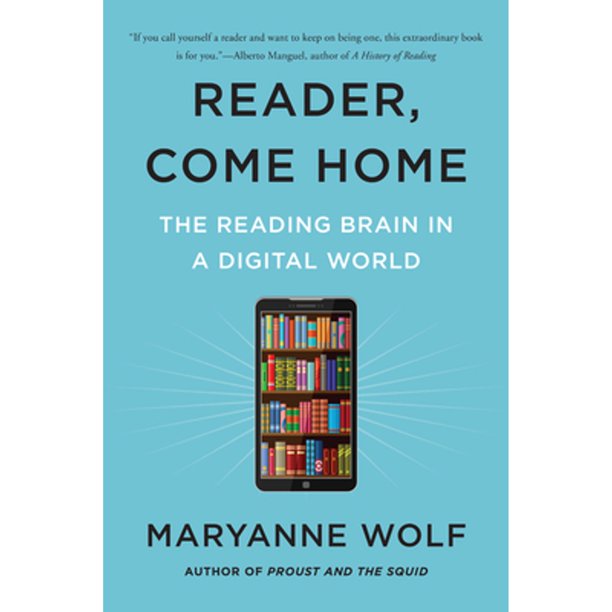- Home
- Process Worldview
- Community
- Art and Music
- Whitehead and Process Thinking
- Podcasts
- Spirituality
- Ecological Civilization
- Education
- Contact
- Social Justice
- Science
- Animals
- Sacred Poems
- Whitehead Videos
- Index of All Titles
- Practicing Process Thought
- Process Spirituality: A Spiritual Alphabet
- Recent Posts
My guess is books are here to stay. I'm not sure about physical books, but I'm guessing digital books will be part of the foreseeable future. The question is: Who will read them?
Many people today find it difficult to read deeply. Not everyone. Scholars can still do it, as can inveterate readers who never lost the capacity. But many of us are now so affected by screen culture that we cannot read deeply anymore, if once we could. We can skim, scroll, and scan texts on laptops, tablets, and smart phones, perpetually seeking novel information and entertainment. We are part of the "information age." But we have a hard time sitting down with a book, in a relaxed and immersive way, for long periods of time. Our consciousness have been changed. We have become cognitively impatient.
The problem is not that we lack the time and will-power; it is that, with the overwhelming influence of screen culture and its emphasis on novelty and rapidity, our brains are now programmed to a different kind of reading: skimming, scrolling, and scanning. Some of us are baby boomers who were once able to read deeply, but can’t do it as easily anymore. Others among us, growing up in screen culture, never had the skill in the first place. Can a capacity for deep reading be regained? Can it be combined with digital reading? Or is deep reading gone forever, to be enjoyed if at all by a very small minority.
- Jay McDaniel
Many people today find it difficult to read deeply. Not everyone. Scholars can still do it, as can inveterate readers who never lost the capacity. But many of us are now so affected by screen culture that we cannot read deeply anymore, if once we could. We can skim, scroll, and scan texts on laptops, tablets, and smart phones, perpetually seeking novel information and entertainment. We are part of the "information age." But we have a hard time sitting down with a book, in a relaxed and immersive way, for long periods of time. Our consciousness have been changed. We have become cognitively impatient.
The problem is not that we lack the time and will-power; it is that, with the overwhelming influence of screen culture and its emphasis on novelty and rapidity, our brains are now programmed to a different kind of reading: skimming, scrolling, and scanning. Some of us are baby boomers who were once able to read deeply, but can’t do it as easily anymore. Others among us, growing up in screen culture, never had the skill in the first place. Can a capacity for deep reading be regained? Can it be combined with digital reading? Or is deep reading gone forever, to be enjoyed if at all by a very small minority.
- Jay McDaniel
Dear Professor ________,
I want to explain why I can't read the novel you've assigned for class: Toni Morrison's Beloved.
It's not that I don't want to read it; I’ve heard so much about it. The problem is that I can't read attentively and thoughtfully - immersively, as you put it. I am addicted to skimming, scrolling, and scanning. I have spent so much time in front of smart phones and laptops that all I can do is read hurriedly,skimming for information and entertainment. When I try to read immersively I get bored and distracted. I think it’s in my brain.
Please understand: I know that it would be good for me to read deeply. It would help me be enter into a new world and empathize with another person's point of view. It would spur my own capacities for independent imagining. It would take me into a more personal and contemplative space: a sanctuary of sorts. I need that space. I worry that most of my life I am distracted and distracted by my distractions, I don't feel centered.
But I just can't slow down in the way that is required.
Any advice?
Carolyn
***
Dear Carolyn,
I have the same problem. I, too, have become addicted to skimming, scrolling, and scanning. I spend lots of time each day "reading" off my smart phone and laptop screen, and it's a hurried kind of reading. Digital reading, if you will. I read off a tablet sometimes, and I like it. But even tablet reading isn't quite the same as having a physical book in my hands.
I find it much easier to scan for bullet points and summary points than to leisurely read a story. There are many kinds of reading, of literacy, and skimming is one of them. It has its time and place, But I'm working on combining digital literacy with a more contemplative literacy that comes from reading good books, novels and other kinds of books, in a slow and immersive way. I am trying to be bi-literate.
Recently I listened to a podcast by Maryanne Wolf, who is a professor at U.C.L.A. School of Education and Information Studies, and one of the world’s leading experts on how reading works on the brain and changes it. She’s the author of “Proust and the Squid: The Story and Science of a Reading Brain,” and of “Reader, Come Home: The Reading Brain in a Digital World,” among other books. It is a great interview and I hope you'll listen to it. It will help you understand your addiction and maybe even give you steps for moving past it. At the end of the interview the interviewer, Ezra Pound, asks her what she does to reclaim the art of contemplative reading. She speaks of a bookend approach: with contemplative reading at the beginning and end of each day. Here's what she says:
"I begin my day with meditation. And then reading at least 20 minutes a philosophical or theological or spiritual or sometimes political — something that will absolutely take me out of myself and center me, completely center my thinking. Slow it down. It prepares me for, if you will, clearing the deck of whatever detritus from the night or even the day before. And readying myself with a particular mind-set for whatever the day brings.
And then at the end of the day, I do two things that may or may not be helpful to people, especially people with young children. And that is I have to find a way for the world of imagination to take me away from the work of the day. Sometimes it’s films; sometimes it’s novels; but it has to be something truly in the world of imagination for me. And then I end that because I don’t want to be on a screen at the very end of my day.
I often end it with some essay by Montaigne. I mean, that sounds really strange. But he was the first essay writer. And those essays are sometimes really funny, sometimes really boring. But whatever they are they give me a kind of peace that I find in very few places. Wendell Berry, Marcus Aurelius, those are the kinds of people who make me feel the peace at the end of the day is something that is really well, well worth striving for. So I end and I begin each day with books."
I don't think you need to follow her approach exactly, but the idea of intentionally spending some time each day in contemplative reading may be a good idea. Think of it as a spiritual practice, a way that you find that center you’re looking for. I’ll do the same.
Professor ________
I want to explain why I can't read the novel you've assigned for class: Toni Morrison's Beloved.
It's not that I don't want to read it; I’ve heard so much about it. The problem is that I can't read attentively and thoughtfully - immersively, as you put it. I am addicted to skimming, scrolling, and scanning. I have spent so much time in front of smart phones and laptops that all I can do is read hurriedly,skimming for information and entertainment. When I try to read immersively I get bored and distracted. I think it’s in my brain.
Please understand: I know that it would be good for me to read deeply. It would help me be enter into a new world and empathize with another person's point of view. It would spur my own capacities for independent imagining. It would take me into a more personal and contemplative space: a sanctuary of sorts. I need that space. I worry that most of my life I am distracted and distracted by my distractions, I don't feel centered.
But I just can't slow down in the way that is required.
Any advice?
Carolyn
***
Dear Carolyn,
I have the same problem. I, too, have become addicted to skimming, scrolling, and scanning. I spend lots of time each day "reading" off my smart phone and laptop screen, and it's a hurried kind of reading. Digital reading, if you will. I read off a tablet sometimes, and I like it. But even tablet reading isn't quite the same as having a physical book in my hands.
I find it much easier to scan for bullet points and summary points than to leisurely read a story. There are many kinds of reading, of literacy, and skimming is one of them. It has its time and place, But I'm working on combining digital literacy with a more contemplative literacy that comes from reading good books, novels and other kinds of books, in a slow and immersive way. I am trying to be bi-literate.
Recently I listened to a podcast by Maryanne Wolf, who is a professor at U.C.L.A. School of Education and Information Studies, and one of the world’s leading experts on how reading works on the brain and changes it. She’s the author of “Proust and the Squid: The Story and Science of a Reading Brain,” and of “Reader, Come Home: The Reading Brain in a Digital World,” among other books. It is a great interview and I hope you'll listen to it. It will help you understand your addiction and maybe even give you steps for moving past it. At the end of the interview the interviewer, Ezra Pound, asks her what she does to reclaim the art of contemplative reading. She speaks of a bookend approach: with contemplative reading at the beginning and end of each day. Here's what she says:
"I begin my day with meditation. And then reading at least 20 minutes a philosophical or theological or spiritual or sometimes political — something that will absolutely take me out of myself and center me, completely center my thinking. Slow it down. It prepares me for, if you will, clearing the deck of whatever detritus from the night or even the day before. And readying myself with a particular mind-set for whatever the day brings.
And then at the end of the day, I do two things that may or may not be helpful to people, especially people with young children. And that is I have to find a way for the world of imagination to take me away from the work of the day. Sometimes it’s films; sometimes it’s novels; but it has to be something truly in the world of imagination for me. And then I end that because I don’t want to be on a screen at the very end of my day.
I often end it with some essay by Montaigne. I mean, that sounds really strange. But he was the first essay writer. And those essays are sometimes really funny, sometimes really boring. But whatever they are they give me a kind of peace that I find in very few places. Wendell Berry, Marcus Aurelius, those are the kinds of people who make me feel the peace at the end of the day is something that is really well, well worth striving for. So I end and I begin each day with books."
I don't think you need to follow her approach exactly, but the idea of intentionally spending some time each day in contemplative reading may be a good idea. Think of it as a spiritual practice, a way that you find that center you’re looking for. I’ll do the same.
Professor ________
This Is Your Brain on Deep Reading:
It's Pretty Magnificent
Podcast on the Ezra Klein show
featuring Maryanne Wolf
Maryanne Wolf is a professor at U.C.L.A. School of Education and Information Studies, and she’s one of the world’s leading experts on how reading works in and — even more importantly — how it works on the brain, how it changes the brain. She’s the author of “Proust and the Squid: The Story and Science of a Reading Brain,” and of “Reader, Come Home: The Reading Brain in a Digital World,” among other books.





